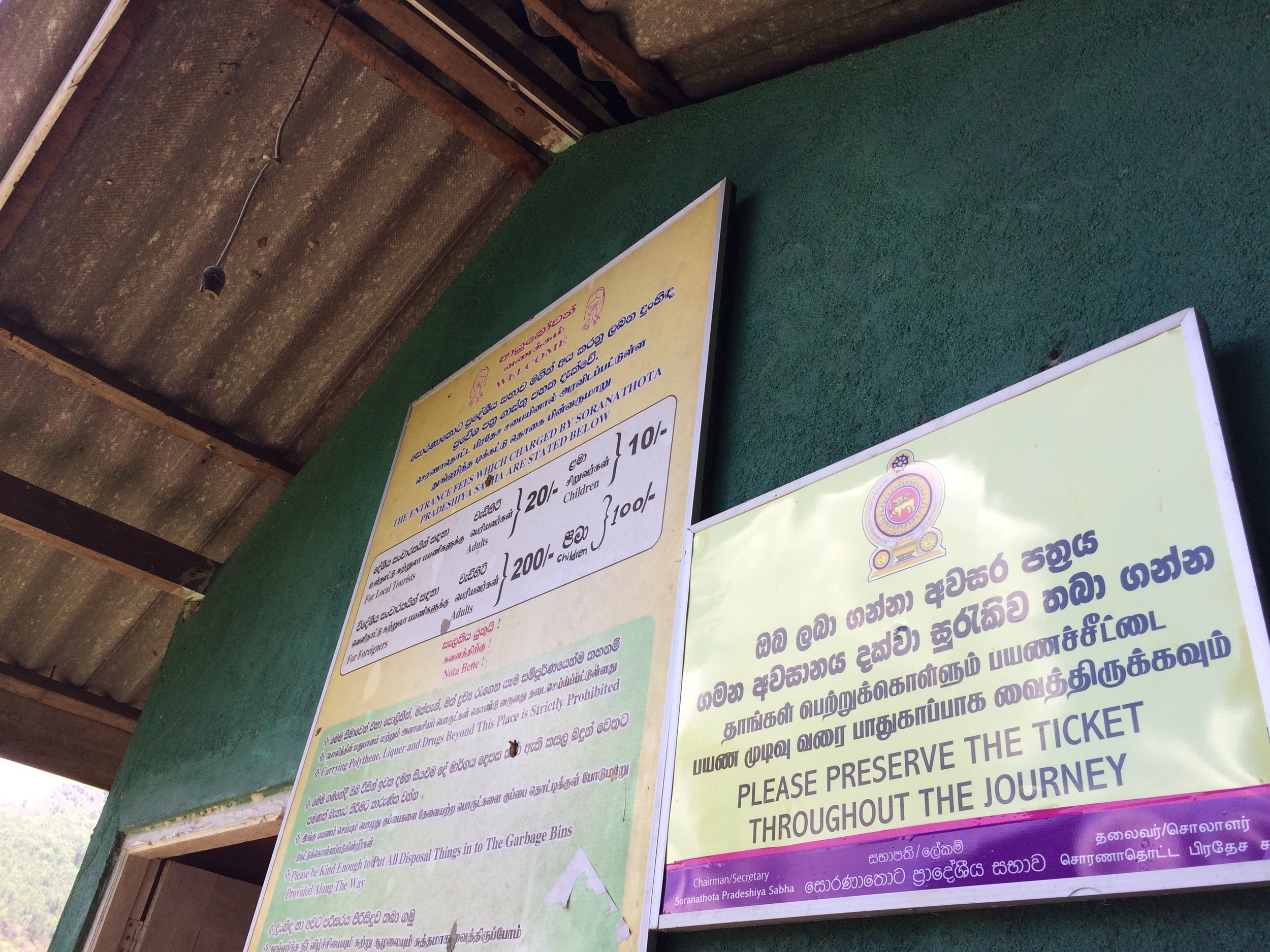Somewhere In Between
Maybe I should have seen it coming.
At a botanical gardens last week in the country where I was born, I witnessed the inherently problematic nature of the supposedly clear divide between "local" and "foreign." As my mom waited in line for tickets, I noticed a strange sign: the fee was 100 rupees (0.7 USD) for "locals" and 1,000 rupees (7 USD) for "foreigners." I stood there and nearly laughed out loud thinking it was some clever park ranger's version of a leftover April fools' trick.
But this was no joke.
The scene took an interesting twist when several park officials (dressed eerily like police officers) took it upon themselves to question my national-ness: whether I sufficiently qualified as a "local" to deserve the lower fare. As they searched through my backpack, they asked where I was from. Instead of a long drawn-out family history, I simply told them the name of my childhood hometown. It didn't ease their concerns.
I confused them: I looked like a "local" but sounded like a "foreigner." The discriminatory fee board did not account for the likes of me. As I grappled with the notion of non-belonging in a place of supposedly inherent belonging, one thought occurred to me. The look of confusion in their eyes revealed the product of an immigrant way of life: even where you are supposed to belong, you don't. Maybe at some point you did, but you no longer do.
Several days later the scene repeated at an elephant orphanage. This time the distinction was greater: 100 rupees for "locals" and 2,500 rupees (17 USD) for "foreign adults." Since the stakes were higher, the security guard asked me directly if I understood Sinhalese, his question sounding more like a statement of fact from a disappointed older relative. Never mind there is a significant minority of "locals" who speak another language. To him, 2,400 rupees was on the line. In my best nonchalant Sinhalese I could muster, I answered him dismissively and proceeded to the gate. I later wondered if a silent treatment and the showing of my "local" passport would have been sufficient.
That answer came at the departure counter at the Colombo airport. The emigration officer insisted my passport picture did not resemble me and then wanted to know why I did not have a National I.D. Not knowing if a country had a right to prevent its citizens from leaving and thinking that it probably did, I played along if only to just leave as soon as I could. I told him I had lived abroad for many years. More questions followed. Maybe he thought I didn't deserve to have the "local" passport. Maybe he was right.
I wish words could explain this feeling of non-belonging, of permanent estrangement in a supposed homeland, of being stuck somewhere in between. But maybe that's the point -- maybe the fact that this phenomenon is difficult to describe adds to its strangeness. And maybe even to its universality. Maybe what cannot be explained in words can be felt in the hearts of people around the world struggling to define themselves in a purportedly binary world of "locals" and "foreigners."
Maybe those who exist somewhere in between can compel the rest to reevaluate the existence of the binary. And then maybe we can live in a time when someone is neither put into a box nor compelled to choose one.


